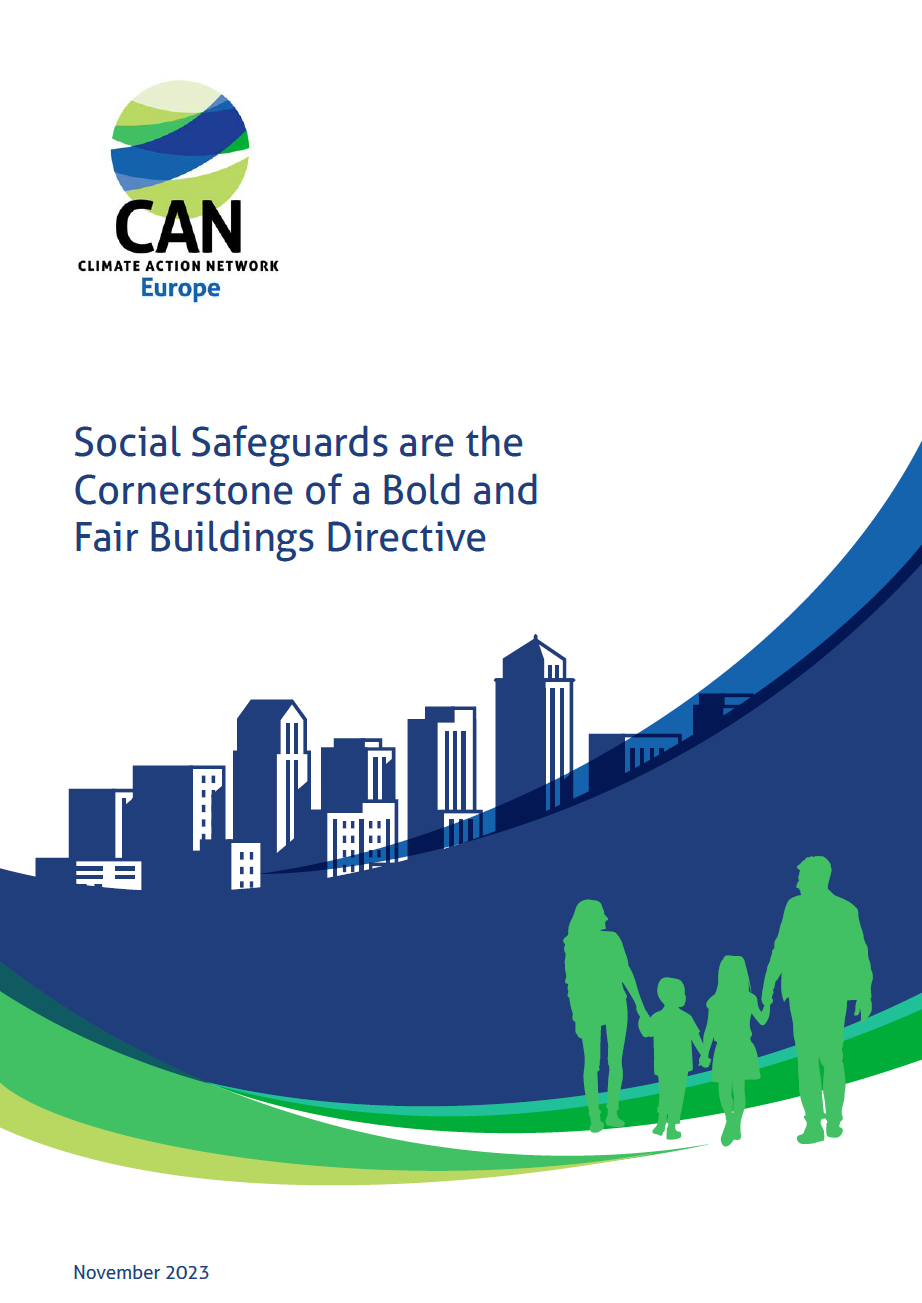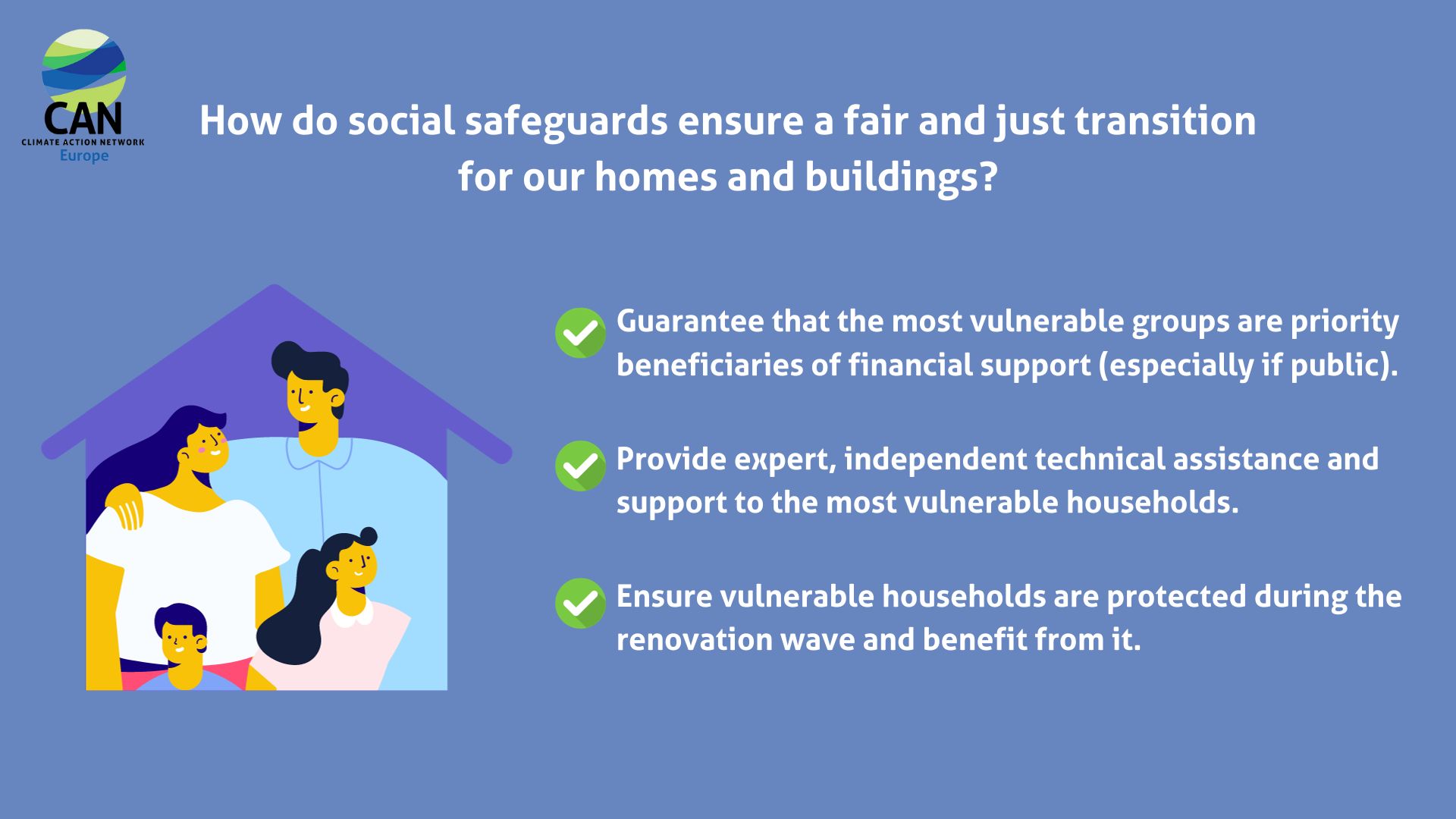
CAN Europe’s latest briefing, Social Safeguards are the Cornerstone of a Bold & Fair Buildings Directive, explores the crucial role that social safeguards have in the planning and implementation of the renovation activities needed to deliver climate neutral, healthy and comfortable European homes and buildings as soon as possible.
The majority of homes and buildings within the European Union are unfit for living due to their low energy performance. Around 75% of EU buildings within remain inefficient and are highly dependent on fossil fuels. They are responsible for 36% of CO2 emissions and 40% of the EU’s energy demand. These leaky buildings are a major contributing factor in the rise of energy poverty levels, causing financial and health issues to many households across Europe, while also contributing to the worsening climate crisis.
A wide-spread renovation wave across Europe is urgently needed and for it to be successful, a bold and fair Energy Performance of Buildings Directive (EPBD) that is embedded with strong social safeguards must set the foundation. These social safeguards should ensure that no one is left behind as homes and buildings across Europe undergo deep renovations and fossil fuel heating and cooling systems are replaced with sustainable, renewable technologies. These social protection measures will ensure that homeowners, tenants and public buildings with essential services are not impacted as the Minimum Energy Performance Standards (MEPs) for each building is improved.

The delivery of a socially just and ambitious EPBD will not only favour the fulfilment of the EU energy and climate goals, but also support households to live, work, study and play in healthy buildings for the generations to come. In view of the upcoming end of the trilogues and possible adoption of the EPBD by end of this year, we call on co-legislators to deliver a Directive that leverages the incredible multi-faceted potential lying behind the renovation of worst-performing buildings. Tackling this segment ambitiously, inclusively and in a timely manner will ensure the achievement of our energy and climate targets while fighting against energy poverty.
Author:
Eva Brardinelli, Buildings Policy Coordinator at Climate Action Network Europe (CAN Europe).
Acknowledgments:
The author would like to thank the reviewers for their support in finalising this briefing:
Louise Sunderland, Managing Principal at Regulatory Assistance Project (RAP)
Anna Zsófia Bajomi, Energy poverty policy officer at European Federation of National Organisations Working with the Homeless (FEANTSA)
Javier Tobias Gonzalez, Project Manager for Energy and People at ECODES



